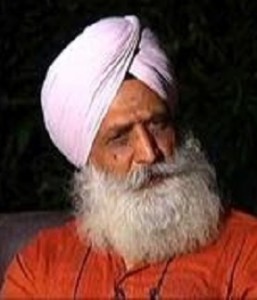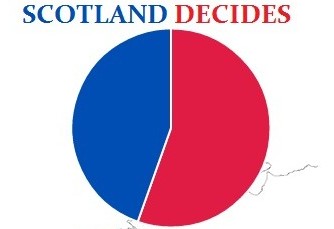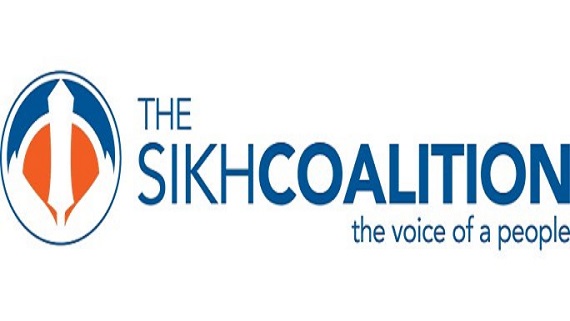Articles/Opinion
Scotland Referendum entails implications for the world and India
September 23, 2014 | By Jaspal Singh Sidhu

author: S. Jaspal Singh Sidhu
The BBC has monitored the world media to know the impact of the 18 September Scotland referendum ‘beyond the British Isles’. The Scotland development has emboldened separatism in the Europe but cast a worrying spell on ‘nations’ in other parts of the world. Like India, other Asian ‘nations’ deliberately sought to keep mum over the referendum and allowed to pass it off as ‘non-issue’.
The BBC report says “Most newspapers (in India) fear the referendum will fuel calls for similar exercise in Indian-administered Kashmir and the country’s north-eastern region.” On the eve of referendum, The Telegraph noted, “India is quietly hoping Scotland does not breakaway from the UK, but it has not only articulated its stance on the referendum. It worries about a separation rooted in the implications for Kashmir and the country’s east”.

Scotland Decodes 2014
The Scotland episode has challenged the political concept of ‘Nation-state’ much-touted as the best form of governance, the West had bequeathed to the world. Scotland is seeking its separation form United Kingdom (UK) after 307 years. Though the Scottish lost their separation bid last week, but it exposed the underbelly of a nation-state which ran a largest British empire in the history and colonized the best parts of the world. Now, the UK has officially admitted it as a multi-nation state, with four distinct nations–not a single nation-state as touted to the world for three centuries. The political discourse in the UK has changed for all the time to come with Scotland promised more powers mandating concomitant restructuring of the London Establishment to accommodate other three nations.
Similarly, other European ‘nations’, earlier known as ‘monolithic entities’ are, too, undergoing a process of disintegration with their separate and distinct identities asserting for independence. Living TOGETHER for over 300 years as a NATION governed by a single State has not dissolved the distinctive cultural identities. For example, Yugoslavia has broken into separate unit countries, Czechoslovakia dissolved into Czech and Slovakia without a murmur, Catalonia and Basque are opting for separation from Spain and Italy and Belgium too facing separatist demands from their constituents. Outside Europe, Quebec in Canada has been inching for separation and it lost the referendum only by a fraction (0.5) in 1995. The erstwhile Soviet Union, emerged as a bigger united country after the October 1917 revolution, got dissolved into 15 countries after seven decades. And, Lenin who died soon after the revolution, did not subscribe to the ‘melting-pot’ theory of America for assimilation of distinct identities and observed during a debate on nationalities that ‘identities tend to take more times to disappear than the classes’. In all, since 1980, as many as 39 new ‘nations’ have joined the United Nations.
![Scotland and UK Flags [File Photo]](https://sikhsiyasat.net/wp-content/uploads/2014/09/Scotland-and-UK-Flags-e1411007033532.jpg)
Scotland and UK Flags [File Photo]
The way Scotland referendum was conducted has shown that unlike India the separatism was neither taken as “anti-national’’ activity by the London Establishment nor the latter used force to thwart it . Neither did it go in for any pre-emptive move for branding pro-independence campaigners as ‘disgruntled and foreign-agents’. The remarkable maturity and sobriety shown by the both sides—the unionists and pro-independence campaigners- have sent a strong message to other democratic countries, particularly to India that most complex and critical issues like ‘separatism’ could be tackled without shedding a drop of blood.
During a debate for Scotland independence, its ace campaigner, the first minister Alex Salmond said, “Scotland is not oppressed and have no need to be liberated. Independence matters because we do not have powers to reach our potential.” On the other hand, neither the London ruling party leaders rushed to Scotland to check ‘hyper nationalism’— respected the opinion of the Scottish people — nor there were riots in the name of ‘UK nationalism’. Another Scotland independence leader summed his sentiments as: “Independence is not anti-national …. in every Scottish brain there has been a tiny ‘blue-and-white’ cell which secretes an awareness…… ‘my country was independent once’……. would it be grand , if one day….. we achieve that …..”.
In modern times, the cultural and religious independence is being taken as ‘birth right’ of people in democratic set up so as their other fundamental rights in the political category. And, yearning for and seeking the fulfillment of such rights are, no longer, treated as ‘crime’ in the civilized world. But one wonders, when Sri Lanka wages three decade old bloody war to contain separatism of Tamil Tigers under the delusion that the Tamil dissidence has been wiped out permanently. Sri Lankan President Rajapaksa, still goes in for ‘tight-rope-walking’ even as he, with help of other countries, succeeded in establishing Sinhalese racist regime, that too, after staging cold-blooded killings of thousands of Tamil civilians.
![Indian paramilitary soldiers stand guard during restrictions in downtown Srinagar on August 2, 2014. [File Photo]](https://sikhsiyasat.net/wp-content/uploads/2014/09/Kashmir-e1411439424133.jpg)
Indian paramilitary soldiers stand guard during restrictions in downtown Srinagar on August 2, 2014. [File Photo]
India is still engaged in shaping the country’s political governance on the 19th century Western model of ‘nation-state’ based on the principle of “one people, one nation, one state” even as it seemed to have exhausted its long-run in the UK where it had originated. The Indian freedom movement leaders took up the ‘model of democracy’ from the British textbooks and were hell-bent for its imposition even at the cost of the Partition of the country. The Indian constitution was too framed on the Westminster model without caring for ground realities of the country. As the problems began to flow from the model, India rulers switched to invest the Indian constitution and territorial unity was granted a religious-level sanctity while political dissensions were dubbed as ‘anti-national’ and ‘criminal activities’. Indian ‘nationalism’ is based on and equated with the majority’s religious ethos and culture, which, in turn, renders the minorities as ‘unpatriotic’ and threat to the country’s unity.
It was the ‘nation-state’ building process, taken up by Nehru-Patel after the Partition saw the Sikhs as peoples branded as ‘anti-national’. Their demands were described as ‘secessionist’ ones to be suppressed with the army attacking the Darbar Sahib (Amritsar) to be followed by the November Sikh pogrom in 1984 and a decade-long bloodshed in Punjab. And, the north-east has, too, remained a ‘boiling pot’ in the post-1947 era.
Eminent sociologist Shiv Vishwanathan says: “Nationalism could not be a substitute, merely replacing the Whiteman with Indians with the same mentality, was not independence ….. 40 millions people displaced by dams and 10 million by riots. Over a million troops outside the army are deployed for internal order and control”.
While Scotland referendum is coming with a whiff of a fresh thinking on governance issues, the Sangh Parivar (RSS) has been crusading against what they called ‘Love-Jihad’ and pressing for ‘uniform civil code’ and scrapping of ‘article 370’ , thereby treating Kashmir as ‘real-estate’ sans of people having their own history and culture. Interpreting the county’s ‘territorial integrity’ through religious symbols and deities like ‘Bharat Mata’ tends to further deprive millions of voiceless and hapless peoples of their feeble voice. The Sangh’s crusades are eating away the diversity every sort and is indicative from the fact thrown up by a national survey that as many 1500 oral languages have already been reduced to silence in the free India.
About Author: S. Jaspal Singh Sidhu retired as a Special Correspondent with United News of India (UNI) at its New Delhi Headquarters in 2008. Since then, have been working as free-lance journalist and writing on Agriculture, Human rights and political affairs. He can be reached at:
To Get Sikh Siyasat News Alerts via WhatsApp:
(1) Save Our WhatsApp Number 0091-855-606-7689 to your phone contacts; and
(2) Send us Your Name via WhatsApp. Click Here to Send WhatsApp Message Now.
Sikh Siyasat is on Telegram Now. Subscribe to our Telegram Channel
Related Topics: India, Indian Politics, Kashmir Issue, Scotland Independence Referendum, Scotland Referendum (OP-ED), United Kingdom





